You provide your four-legged companion with the best care possible. However, you must avoid the temptation to give your pet something from your medicine cabinet when their allergies act up or they’re in pain. What might be safe and effective for you can often be harmful and sometimes deadly for your pet. Medication toxicity occurs in more than 40,000 pets annually. Common human medications stored in most households contribute to this alarming statistic. Our Oliver Animal Hospital team covers commonly used medications that can be dangerous to pets, highlighting their potential effects and offering prevention tips.
Dangerous drugs for cats and dogs
Over-the-counter (OTC) medicine and prescription drugs are often carelessly left on bedside tables where a curious pet can retrieve them. In other instances, well-intentioned owners may give their pets medications that can result in toxicity. Do not give your cat or dog any of these common human medicines:
- Acetaminophen — Acetaminophen (Tylenol) is a widely used pain reliever and fever reducer, but the drug can be highly toxic to pets, especially cats. Even if your pet ingests a small dose, acetaminophen can result in red blood cell and liver damage, and lead to death if not treated promptly. Acetaminophen toxicity signs include vomiting, difficulty breathing, lethargy, and facial and paw swelling.
- Nonsteroidal anti-inflammatory drugs (NSAIDs) — Other common pain relievers are NSAIDs, including ibuprofen, such as Advil and Motrin, and naproxen, such as Aleve. A pet who ingests an NSAID can experience gastrointestinal (GI) ulcers, kidney failure, and liver damage. Dogs are particularly susceptible to these medications, and if your pooch ingests them, they can experience vomiting, diarrhea, abdominal pain, and black, tarry stools. In severe cases, NSAID toxicity can result in kidney failure and death.
- Antidepressants — Antidepressants, such as selective serotonin reuptake inhibitors (SSRIs) and tricyclic medications, are used to treat depression, anxiety, and phobias. Sometimes, they are administered to pets to treat behavioral disorders such as separation anxiety. However, a high dose can lead to serotonin syndrome in dogs and cats. Toxicity signs include agitation, tremors, seizures, elevated heart rate, and increased body temperature. Serotonin syndrome can be life-threatening if not treated promptly.
- Stimulants — Medications used to treat attention deficit hyperactivity disorder (ADHD) and narcolepsy in humans, such as methylphenidate (Ritalin) and amphetamine-based drugs (Adderall), can be highly toxic to pets. Pets who ingest these stimulants can experience elevated heart rate and increased blood pressure. These drugs can also cause tremors and seizures, and can sometimes be fatal if a pet ingests them. Dogs are often attracted to the sweet flavor of these medications, tempting them to ingest the pills.
- Benzodiazepines — Xanax and valium are two recognizable benzodiazepine brand names that are prescribed for anxiety, post-traumatic stress disorder (PTSD), and sleep disorders. In pets, however, these medications can cause lethargy, disorientation, weakness, and respiratory depression. If a pet, especially a small pet, ingests a large dose of a benzodiazepine, they can become comatose and die.
Preventing human medication toxicity in pets
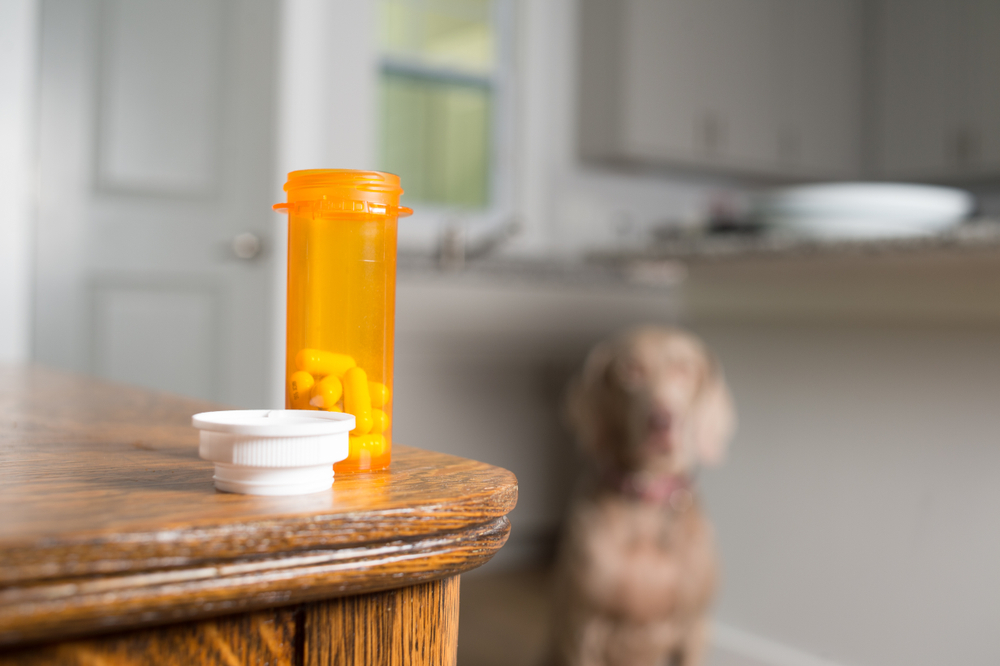
Medications are ubiquitous in most households, making your pet’s safety a challenge. To prevent your furry pal from accidentally ingesting human medications, follow these tips:
- Keep medications out of pets’ reach — Store all medications securely out of your pet’s reach in a medicine cabinet or secure closet. Remember, dogs can chew apart a pill bottle in no time, so never leave your medications on low-lying or bedside tables.
- Discard expired medications — Take expired medicines to your local pharmacy or other expired drug exchange program.
- Take medication while alone — Take your medication in a room that is off-limits to your pet. Good lighting makes finding a dropped pill or capsule easier.
- Clean up immediately — If you drop a pill or spill liquid medication on the floor, promptly pick up the pill or clean up the spill because your curious pet might mistake the drug for something edible.
- Prevent mix-ups — Keep your medications separated from those of your pet to avoid accidental mix-ups. Ensure all labels are legible for clear identification.
- Avoid pet kisses — Don’t let your pet lick any area of your body on which you’ve applied topical medications. These topicals can contain drugs that are dangerous to your furry pal.
- Securely store OTC treatments and recreational drugs — Nicotine patches and gum, along with marijuana edibles, should be stored the same way you would store medications because they are equally poisonous to pets.
- Seek veterinary advice — Consult your Oliver Animal Hospital veterinarian before administering medications intended for human use to your pet.
- Be prepared — If you suspect your pet has ingested something toxic, immediately contact us or the Pet Poison Helpline for guidance. Be prepared to provide information about the medication type and amount your furry pal has ingested, as well as your pet’s weight and current condition.
While medications can provide relief and improve your health, these drugs pose serious risks to your pet’s health if they ingest them. By being aware of the potential dangers drugs can cause your pet and following preventive measures to keep medications away from your four-legged friend, you help keep them safe and healthy. Contact our Oliver Animal Hospital team if you suspect your pet has eaten a medication or you have additional questions about keeping your pet safe from harmful drugs.


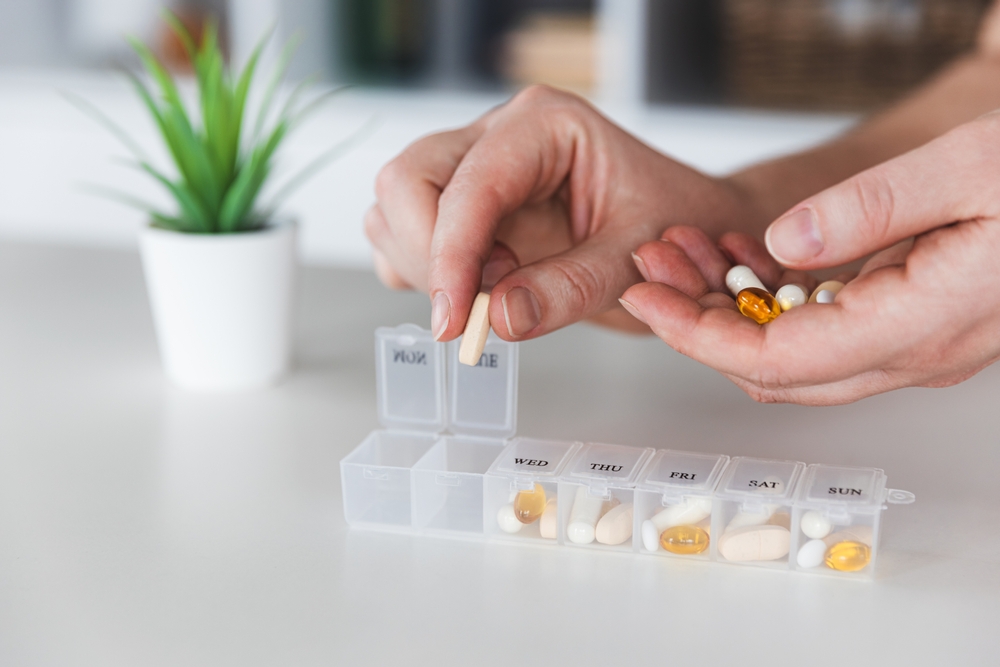
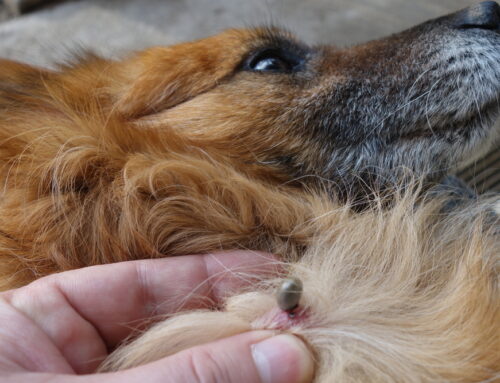
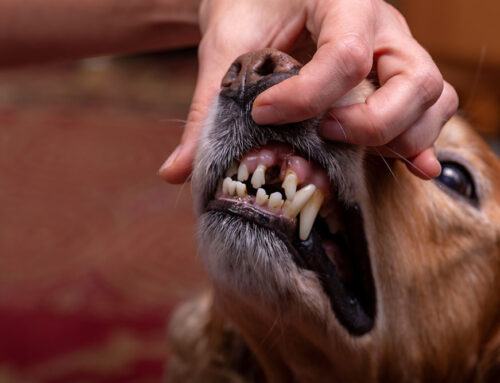
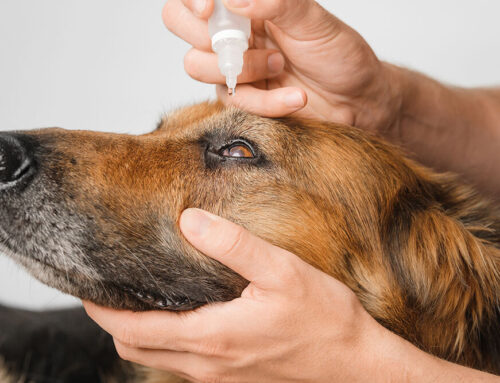
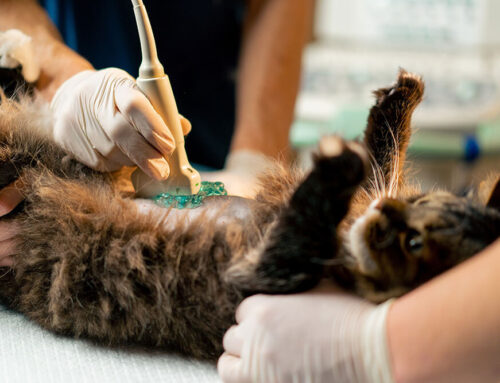
Leave A Comment